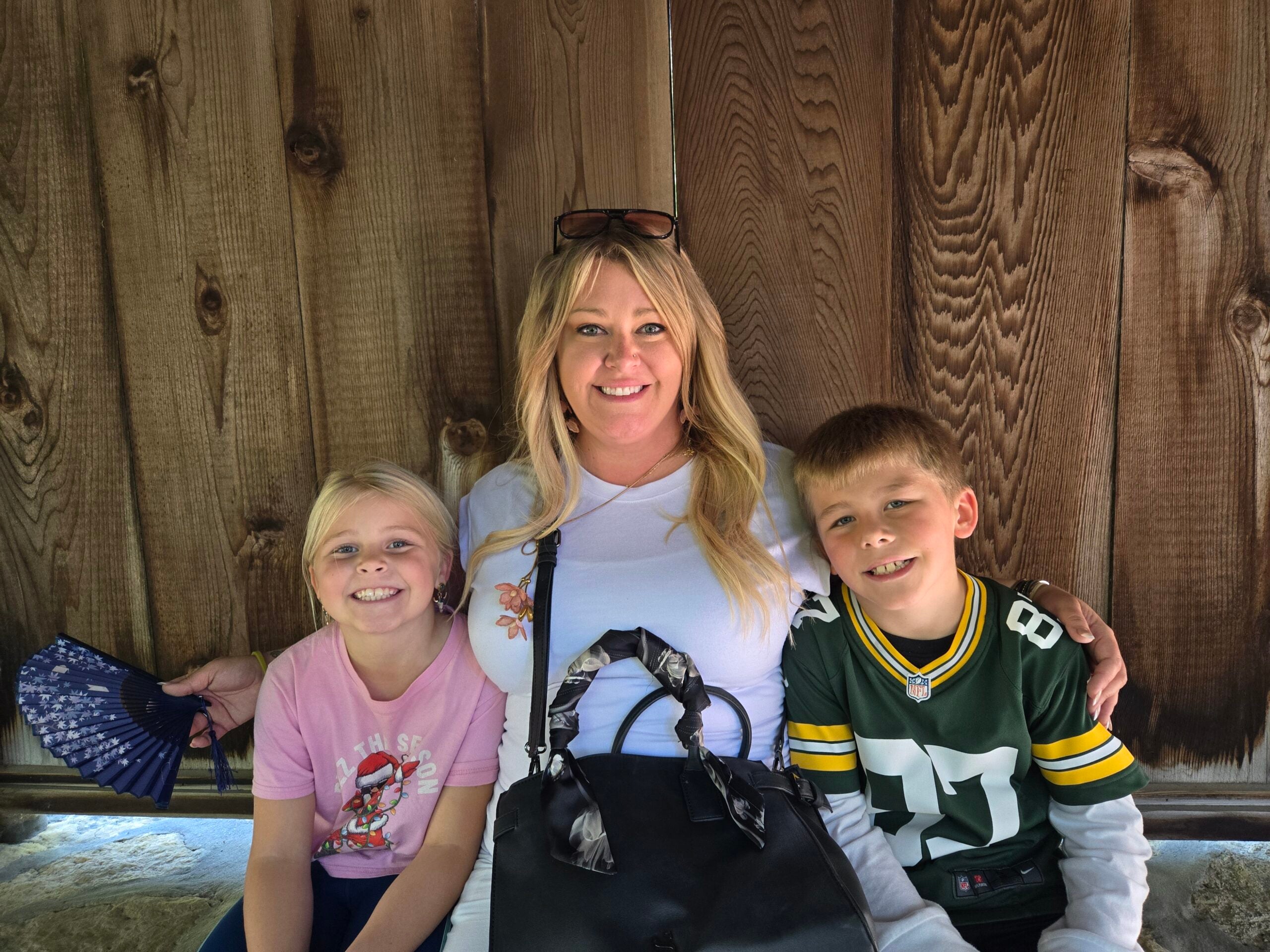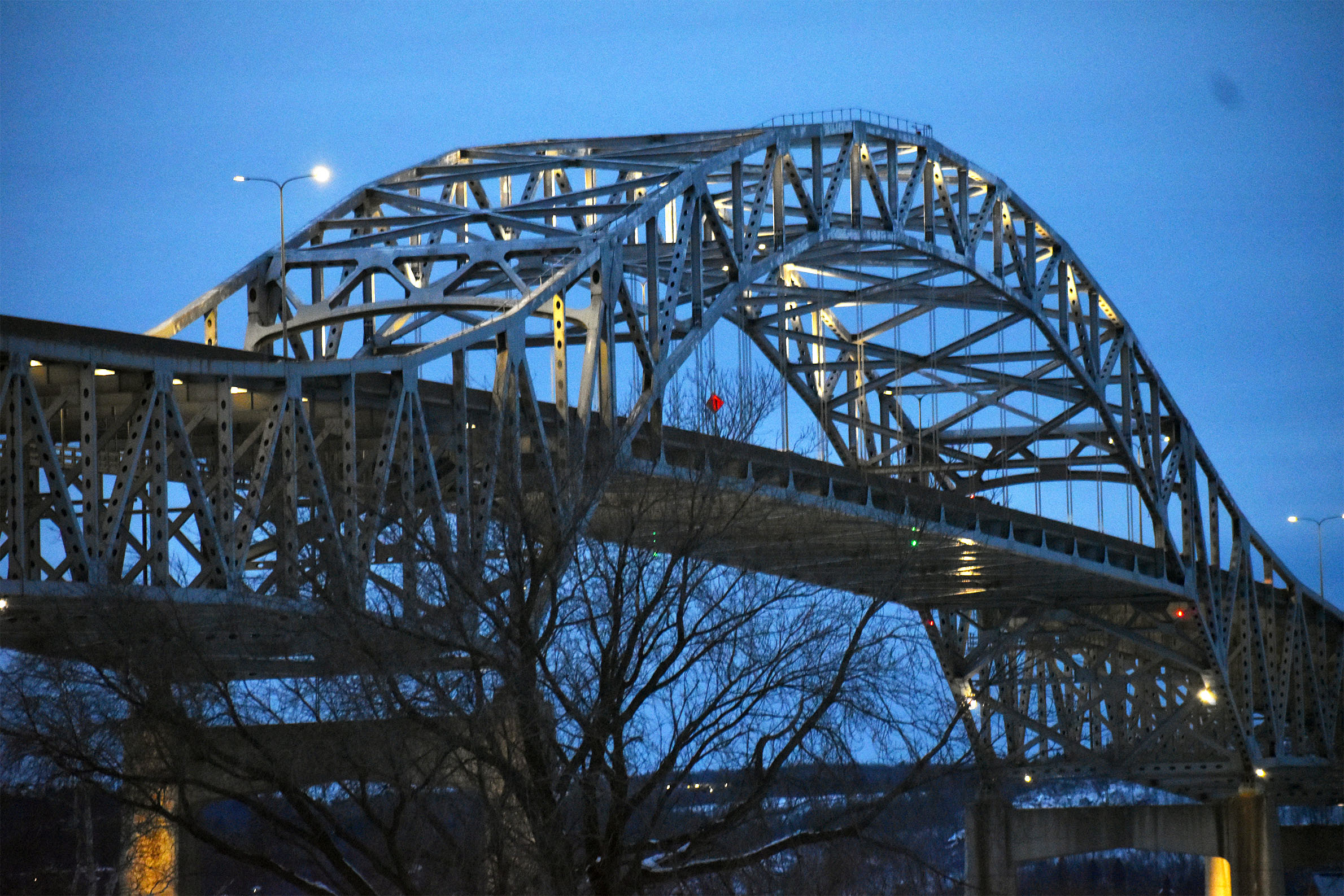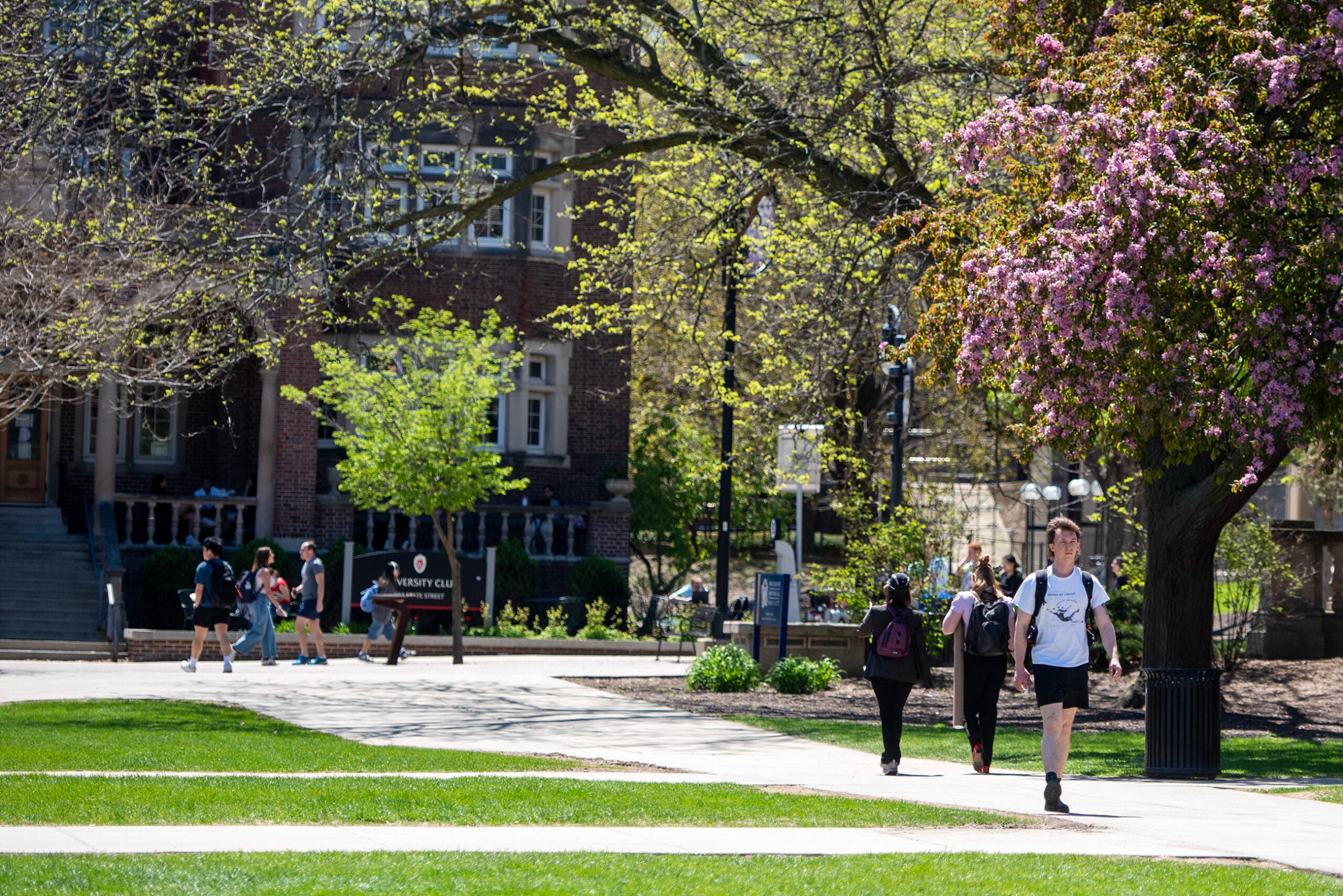Tom Tiffany, who has represented Wisconsin’s 7th Congressional District since 2020, identifies immigration and inflation as his top priorities should he return to Washington next year.
The Hazelhurst Republican also pledged support for the Biden Administration’s billion-dollar rehab of the Blatnik Bridge, as well as his own initiative to redesignate the Apostle Islands National Lakeshore as a national park.
Tiffany is seeking his third term in the northwest Wisconsin seat, formerly a Democratic stronghold before flipping Republican with the election of his predecessor, former Rep. Sean Duffy, in 2011.
News with a little more humanity
WPR’s “Wisconsin Today” newsletter keeps you connected to the state you love without feeling overwhelmed. No paywall. No agenda. No corporate filter.
A former state legislator, Tiffany ran an excursion boat company in the Minocqua area and was the local dam tender on the Willow Flowage after growing up in Elmwood, near Eau Claire, and earning a degree in agricultural economics from the University of Wisconsin-River Falls. He and his wife, Chris, have three daughters.
Tiffany, who faces Democratic challenger Kyle Kilbourn of Woodboro in the November election, spoke with WPR’s Robin Washington on “Morning Edition.”
This conversation has been edited for brevity and clarity.
Robin Washington: Since you’ve been in Congress, what’s been your proudest accomplishment for the district?
Tom Tiffany: No. 1 is constituent service. I think that’s the case for all of us, whether we’re in the majority or the minority — making sure we’re taking care of people back home.
This year, now, I believe there’s over $4 million that we have returned to our constituents here in the 7th Congressional District in northern and western Wisconsin — everything from IRS concerns to getting money back for benefits that are due to our veterans. My staff takes great pride in making sure that we give good constituent service.
RW: Looking to the future, what’s your top priority for the region, should you return to Congress?
TT: The top priorities are the big issues before us here in America, and that starts with illegal immigration and inflation. That’s what I hear about from people across the district. The cost of living has gone up so much, and their paychecks, even if they’ve received a raise, have not kept up. And certainly from Social Security recipients. I’m hearing from some that they’re having to go back and get a second job.
Inflation is certainly much on people’s minds, but we also hear it in regards to illegal immigration. Even here, one of the furthest places from the southern border, we had a log truck driver in Rusk County who was killed as a result of an illegal immigrant second offense drunk driving. There are three girls in northern Wisconsin that no longer have a father. There were two children stabbed to death in Abbotsford, a little town of Abbotsford. This stuff is going on across America and no one is immune from it, including those of us in northern Wisconsin. We have to get the borders secured.
RW: President Biden has made two visits to Superior in less than two years, specifically touting his administration’s allocation of $1 billion dollars to replace the Blatnik Bridge. If President Trump returns to the White House, what will you do to make sure this project stays on track? Or is it a democratic boondoggle?
TT: It’ll be good that that bridge is going to be built. The big concern that I had going into it is that we have such a long, complicated permitting process here in America and it’s something that needs to be fixed and it’s something that I’ve been working on and I’m hoping with the new administration, we’re going to be able to change. We’re seeing big projects that are taking 10, 15, 20 years to be permitted and it adds significant cost to them.
For example, the Blatnik Bridge. I believe if we did this in a more streamlined manner — don’t reduce standards, but do it in a more streamlined manner — we probably could have brought that bridge in under $1 billion.
It’s great when any president comes to Superior or to the district. I applaud that, regardless of whether they’re Republican or Democrat. But President Biden, as a result of his anti-energy policies, has driven up the cost of diesel fuel, gasoline and other petroleum products. That’s leading to higher costs for these infrastructure projects. So President Biden will tout that he has put more money into infrastructure spending, but most of it is being eaten up by inflation. The one thing that we really need to do is get back to energy independence, energy abundance, which will bring down the cost of energy for all Americans, including for our infrastructure projects, and bring projects like the Blatnik Bridge in under cost.
RW: You’ve proposed redesignating the Apostle Islands National Lakeshore as a national park, citing potential increased tourism and economic benefits. Some local officials say the area can’t handle much more tourism and that your proposal was a surprise to them. Both you and they have said that it shouldn’t be a partisan issue. Is there a path for compromise here, perhaps by bringing more federal money and resources to the Lake Shore without the redesignation?
TT: So I don’t know if more resources will come via the National Park Service, which manages the national lakeshore currently. I don’t know that they’re going to direct more money to the national Lakeshore without the designation as a National Park. Indiana Dunes in northern Indiana is a perfect example. When they went from a national Lakeshore to a National Park a few years ago, more resources have been allocated by the National Park Service to Indiana Dunes. And I think the same thing can happen here.
I really appreciate the input that we’ve gotten on this. It’s the reason why we had the hearing in July, a good hearing to kick this off. And now people are expressing their opinions, including the telephone town hall that we did with over 5,000 people earlier this month. I just really appreciate it, whether they’re supportive, perhaps not supportive, or they just want more information. We can provide it for them and we’ve been trying to do that as we go through the process like we do with any other bill of moving it through committee, and seeing if it’s worthy of having a vote before the full House of Representatives.
Wisconsin voters head to the polls on Nov. 5. For all of WPR’s campaign coverage, including presidential, congressional and legislative races, visit WPR’s Election 2024 page.






